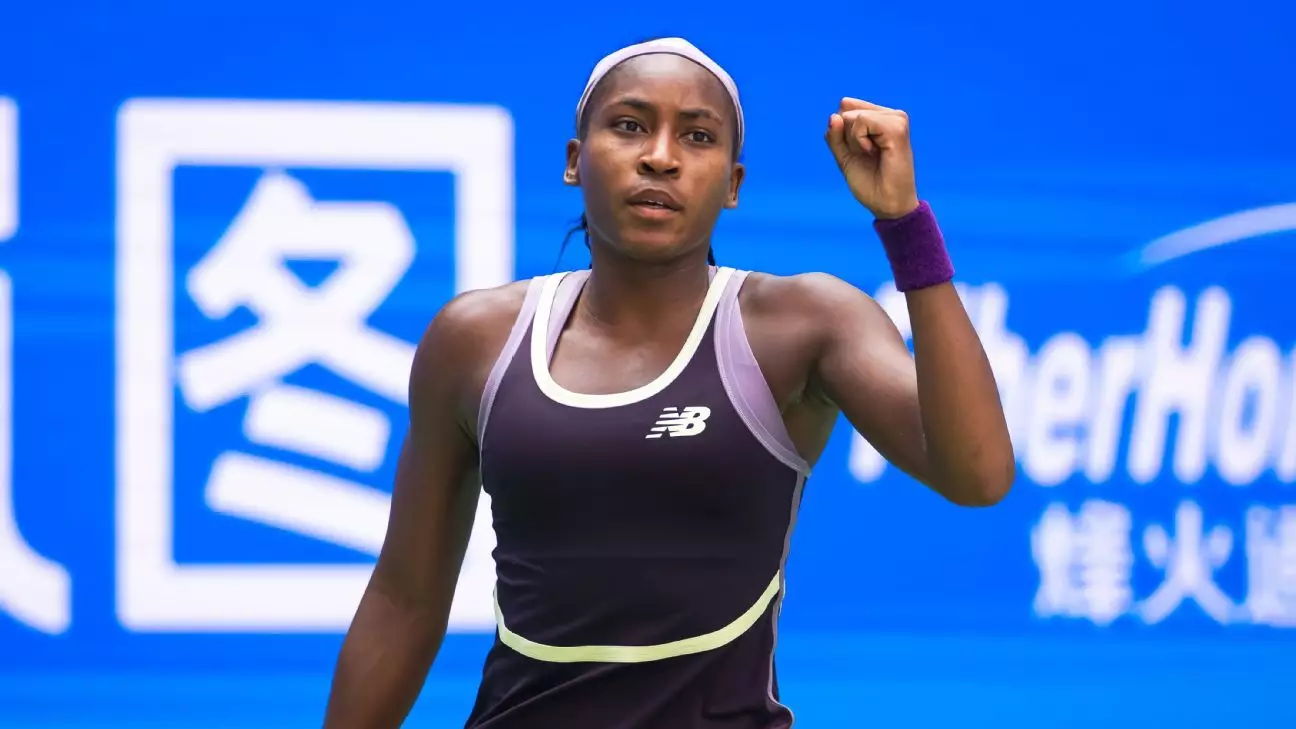The decision to hold the Women’s Tennis Association (WTA) Finals in Saudi Arabia from 2024 to 2026 is a bold and significant move, rich with implications for gender equality and the LGBTQ community in the kingdom. Coco Gauff, the esteemed 2023 US Open champion, has made it clear that, while she appreciates the opportunity for change through sport, she harbors some reservations. As this becomes the first professional women’s tennis event in the nation, it raises questions about how effectively sports can serve as a catalyst for social progress.
Traditionally viewed through the lens of competitive excellence, the significance of the WTA Finals extends far beyond the court. These events can inspire cultural change and improved visibility for women and marginalized groups, pushing for a narrative that transcends sport into broader societal reform. By choosing Riyadh over Cancun, Mexico, the WTA has shifted the spotlight onto a nation that has been notorious for its human rights record.
The WTA’s commitment to fostering sports among Saudi women represents an underlying hope for change. The plan to bolster the Future Stars program aims to introduce more Saudi women to tennis, breaking down barriers in a conservative environment. With the ambition of nurturing a million new tennis players by 2030, this initiative could prove vital in altering perceptions about women in sports within the kingdom.
Gauff’s insights into these programs demonstrate a careful awareness of her role as an athlete, moving beyond mere participation to advocacy. Gauff emphasizes the importance of not just showing up but implementing impactful change. In her discussions with local women, she highlights a willingness to engage in conversations regarding women’s rights and LGBTQ issues, showing her awareness of the broader context in which her sport operates.
A Dual Perspective on Sportswashing
Nevertheless, the WTA’s decision has drawn scrutiny from critics who accuse the Saudi government of “sportswashing”—using major sports events to distract from its poor human rights record. High-profile figures, including tennis legends Chris Evert and Martina Navratilova, have expressed their concerns regarding prioritizing sports over critical humanitarian issues. Their opposition emphasizes the importance of sporting bodies recognizing their influence and responsibility.
Gauff candidly acknowledged the reservations many players, including herself, have regarding the backdrop of the event. She indicated that the WTA’s responsibility extends beyond just hosting matches; there must be a commitment to address prevailing societal issues. While the Saudi government insists on its role in safeguarding national security, critics maintain that serious consideration of women’s and LGBTQ rights is paramount for real progress.
In reconciling her reservations with the potential for positive change, Gauff conveys a hopeful yet cautious approach. She emphasizes the necessity of evaluating progress firsthand, underscoring the importance of ongoing dialogue. Gauff’s willingness to confront uncomfortable realities speaks to her integrity as an athlete and a leader. Her proactive stance on addressing gender equality and LGBTQ rights issues ensures that the athletes’ voices are not merely instruments of entertainment but essential components of social change.
Ultimately, the WTA Finals in Saudi Arabia represents a confluence of opportunity and challenge. The dialogues sparked around women’s empowerment in sports can be a vehicle for broader cultural shifts within the nation. If done with sincerity and commitment, this inaugural event can be more than just tennis; it can be a step toward a more equitable society.
As the WTA Finals approach, athletes like Gauff are setting a precedent for future sporting events in challenging contexts, where the stakes extend beyond results, encapsulating the very ideals of inclusion and equality that define the sport itself. The path is fraught with challenges, but if navigated carefully, it could pave the way for considerable advancements in the fight for gender equality and LGBTQ rights in Saudi Arabia.

